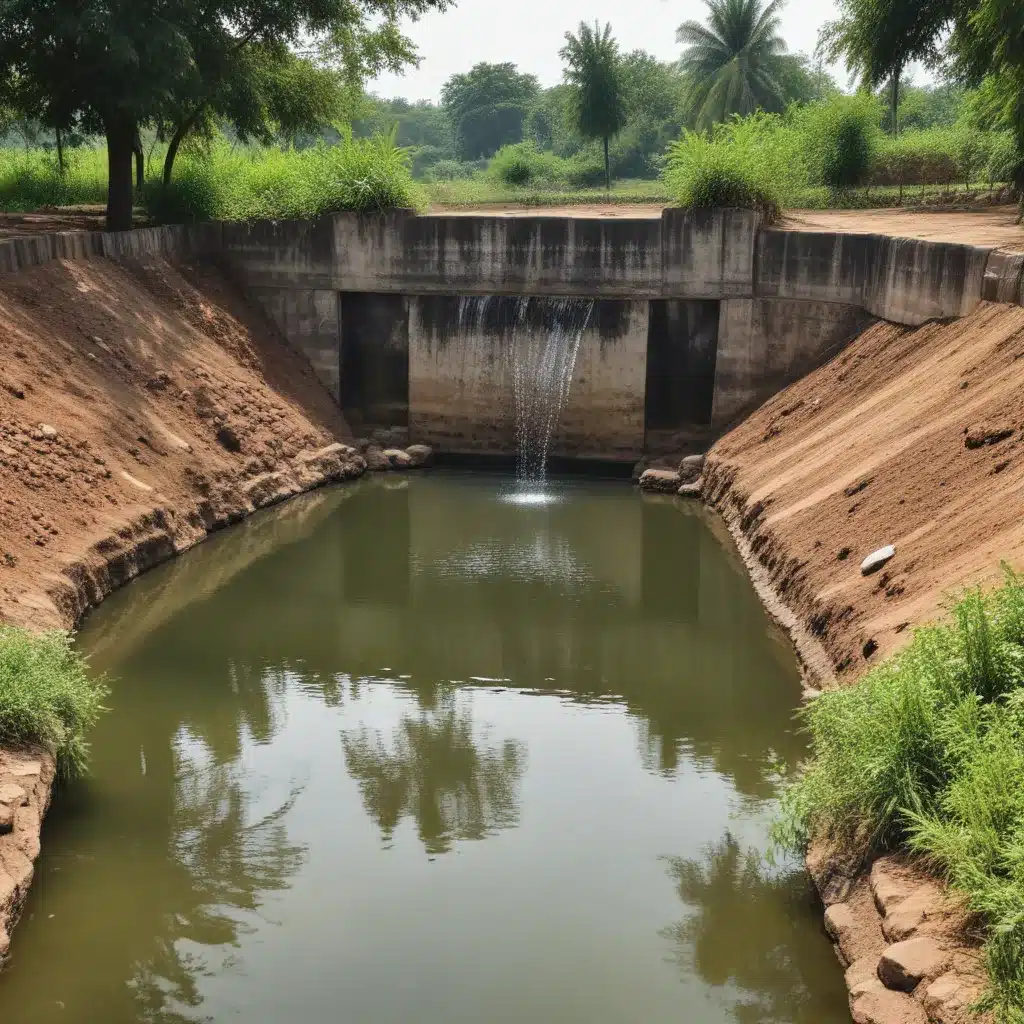
The Water Crisis in Hyderabad and Beyond
India is grappling with a severe water crisis, with numerous regions and cities facing acute shortages of clean, accessible water. Hyderabad, the bustling technology hub of the country, is no exception. As one of the fastest-growing metropolises, Hyderabad’s water demands have skyrocketed, far outpacing the available supply.
The roots of Hyderabad’s water woes can be traced to several interconnected factors. Erratic rainfall patterns, declining groundwater levels, and inefficient water management infrastructure have all converged to create a perfect storm of water scarcity. According to a study published in the journal Science Advances, rising temperatures are compelling Indian farmers to intensify groundwater usage for irrigation, endangering the country’s food and water security.
In recent years, the below-average monsoon seasons have left several regions of Hyderabad and the surrounding Telangana state struggling with drought conditions and acute water shortages. The India Meteorological Department (IMD) has warned of heightened summer heatwaves, further exacerbating the water crisis in the region.
The impact of this crisis extends far beyond just the agricultural sector. Hundreds of millions of urban residents in Hyderabad and across India are facing the devastating consequences of water scarcity, from disruptions in daily life to health risks and social instability.
Innovative Water Harvesting Practices: A Sustainable Solution
Amidst these daunting challenges, innovative water harvesting practices offer a glimmer of hope in mitigating the impact of water scarcity and ensuring food and water security for Hyderabad’s growing population.
Rainwater Harvesting: Tapping the Skies
One of the most promising solutions is the widespread adoption of rainwater harvesting. According to data, these practices can reduce water consumption by 25-85%. By capturing and storing rainwater, communities can alleviate the strain on groundwater resources and ensure a reliable source of water during the dry season.
The Kalpanarameš Rainwater Project, a community-driven initiative in Hyderabad, serves as a shining example of the power of rainwater harvesting. By constructing new water storage structures and rejuvenating existing ponds and lakes, the project has helped increase the water storage capacity in the region by over 200,000 cubic meters. This, in turn, has provided a lifeline to countless rural communities, offering sustenance and prosperity, and combating the water crisis that grips the area.
Micro-Irrigation Techniques: Maximizing Water Efficiency
Another innovative approach to addressing water scarcity in Hyderabad is the adoption of micro-irrigation techniques, such as drip irrigation and subsurface irrigation systems. These methods deliver water directly to the root zone of crops, minimizing water wastage and maximizing crop yields.
“According to data, these water-saving irrigation practices can reduce water consumption by up to 85%, offering a tangible solution to Hyderabad’s water scarcity challenges.”
The use of patented sustainable superabsorbent products, like Zeba, can further enhance water efficiency by up to 20% compared to traditional irrigation methods. These innovative solutions help to optimize water usage, improve soil health, and minimize crop diseases, making them vital tools in the fight against water scarcity.
Groundwater Recharge and Rejuvenation
In addition to rainwater harvesting and micro-irrigation, strategies for groundwater recharge and rejuvenation are crucial in addressing Hyderabad’s water crisis. The government’s Mission Amrit Sarovar initiative, which aims to construct and revitalize water bodies in rural areas, is a prime example of this approach.
By increasing the water storage capacity of local ponds, lakes, and rivers, these “Amrit Sarovars” serve as lifelines to countless rural communities, providing a sustainable source of water for agricultural and domestic use. UPL, a leading agricultural solutions provider, has actively deployed various water management initiatives under this mission, enhancing water sufficiency and enabling farmers to diversify their crops.
Embracing a Holistic Approach to Water Management
To truly address the water crisis in Hyderabad and beyond, a holistic approach to water management is essential. This involves not only implementing innovative water harvesting practices but also enhancing water infrastructure, improving water governance, and fostering community engagement.
Strengthening Water Infrastructure
Hyderabad’s water infrastructure has struggled to keep pace with the city’s rapid growth. Investing in the repair and expansion of pipelines, treatment facilities, and storage reservoirs is crucial to ensuring a reliable and equitable water supply.
Improving Water Governance
Effective water governance, with clear policies, regulations, and enforcement mechanisms, is necessary to protect water resources and ensure sustainable usage. The establishment of the Jal Shakti Ministry in India, tasked with managing the country’s water resources, is a significant step in the right direction.
Engaging Local Communities
Empowering local communities to take ownership of water management is a key aspect of long-term sustainability. Initiatives like the Kalpanarameš Rainwater Project demonstrate the power of community-driven solutions, where residents work together to implement and maintain water harvesting infrastructure.
Conclusion: Toward a Water-Secure Future
Hyderabad’s water crisis is a microcosm of the broader challenges faced by India, a country grappling with the urgent need to address water scarcity. By embracing innovative water harvesting practices, strengthening water infrastructure, improving governance, and engaging local communities, Hyderabad can pave the way towards a more sustainable and water-secure future.
The success stories and best practices from Hyderabad can serve as a blueprint for other cities and regions across India, inspiring them to take proactive steps in tackling the water crisis. Together, we can work towards a greener, more resilient India that thrives in harmony with its precious water resources.
“By embracing innovative water harvesting practices, strengthening water infrastructure, improving governance, and engaging local communities, Hyderabad can pave the way towards a more sustainable and water-secure future.”
To learn more about the Joint Action for Water initiative and explore other resources on sustainable water management, please visit our website.

